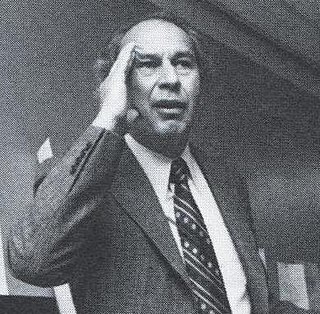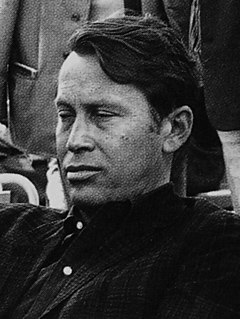A Quote by Edward Bulwer-Lytton, 1st Baron Lytton
Emulation, even in brutes, is sensitively "nervous." See the tremor of the thoroughbred racer before he starts. The dray-horse does not tremble, but he does not emulate. It is not his work to run a race. Says Marcus Antoninus, "It is all one to a stone whether it be thrown upward or downward." Yet the emulation of a man of genius is seldom with his contemporaries, that is, inwardly in his mind, although outwardly in his act it would seem so. The competitors with whom his secret ambition seems to vie are the dead.
Related Quotes
The master in the art of living makes little distinction between his work and his play, his labor and his leisure, his mind and his body, his information and his recreation, his love and his religion. He hardly knows which is which. He simply pursues his vision of excellence at whatever he does, leaving others to decide whether he is working or playing. To him he's always doing both.
Men will imitate and admire his unmoved firmness, his inflexible conscience for the right; and yet his gentleness, as tender as a woman's, his moderation of spirit, which not all the heat of party could inflame, nor all the jars and disturbances of this country shake out of its place: I swear you to an emulation of his justice, his moderation, and his mercy.
A genius is the man in whom you are least likely to find the power of attending to anything insipid or distasteful in itself. He breaks his engagements, leaves his letters unanswered, neglects his family duties incorrigibly, because he is powerless to turn his attention down and back from those more interesting trains of imagery with which his genius constantly occupies his mind.
The fact that labour is external to the worker, i.e., it does not belong to his intrinsic nature; that in his work, therefore he does not affirm himself but denies himself, does not feel content but unhappy, does not develop freely his physical and mental energy but mortifies his body and his mind. The worker therefore only feels himself outside his work, and in his work feels outside himself.
All the delights of sense, or heart, or intellect, with which you could once have tempted him, even the delights of virtue itself, now seem to him in comparison but as the half nauseous attractions of a raddled harlot would seem to a man who hears that his true beloved whom he has loved all his life and whom he had believed to be dead is alive and even now at his door.
It is God's earth out of which man is taken. From it he has his body. His body belongs to his essential being. Man's body is not his prison, his shell his exterior, but man himself. Man does not "have" a body; he does not "have" a soul; rather he "is" body and soul. Man in the beginning is really his body. He is one. He is his body, as Christ is completely his body, as the Church is the body of Christ
The Christian religion, outwardly and even in intention humble, does, without meaning it, teach man to regard himself as the most important of all created things. Man surveys the starry heavens and hears with his ears of the plurality of worlds; yet his religion bids him believe that his alone out of these innumerable spheres is the object of his master's love and sacrifice.
In my acquaintance with John Rawls, I found him to be a simple and honest man, who just by chance also happened to be the greatest moral philosopher of the twentieth century. I would like to think that I could emulate at least his modesty - his refusal to exaggerate his perception of himself and his place in the larger scheme of things - even if my work never compares with his in its importance.
Clearly the hardest thing for the working artist is to create his own conception and follow it, unafraid of the strictures it imposes, however rigid these may be... I see it as the clearest evidence of genius when an artist follows his conception, his idea, his principle, so unswervingly that he has this truth of his constantly in his control, never letting go of it even for the sake of his own enjoyment of his work.





































